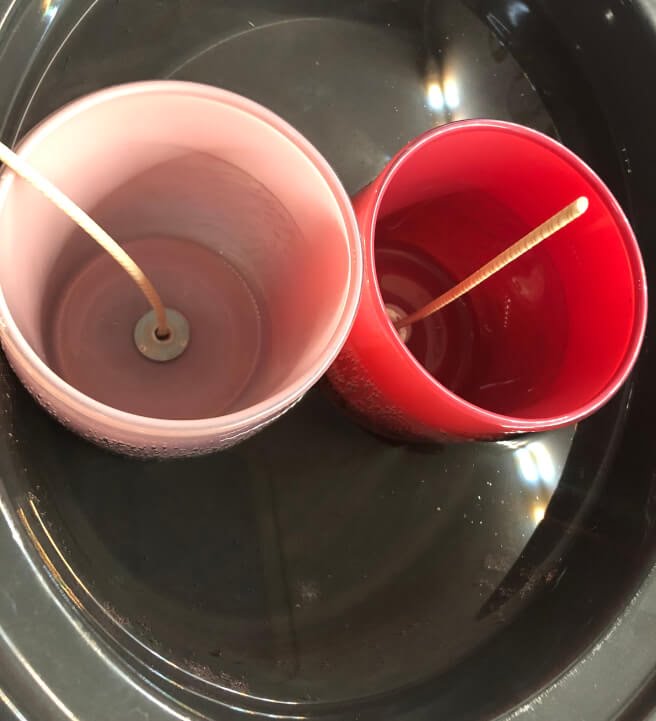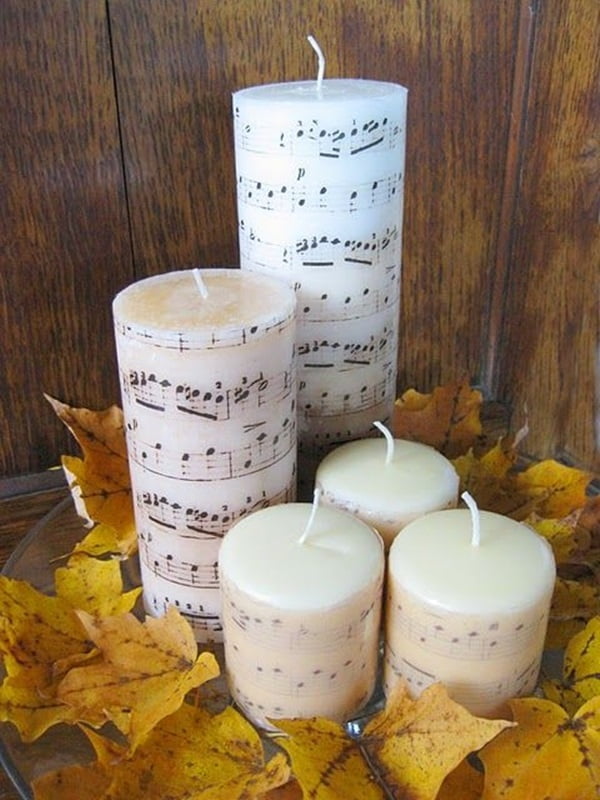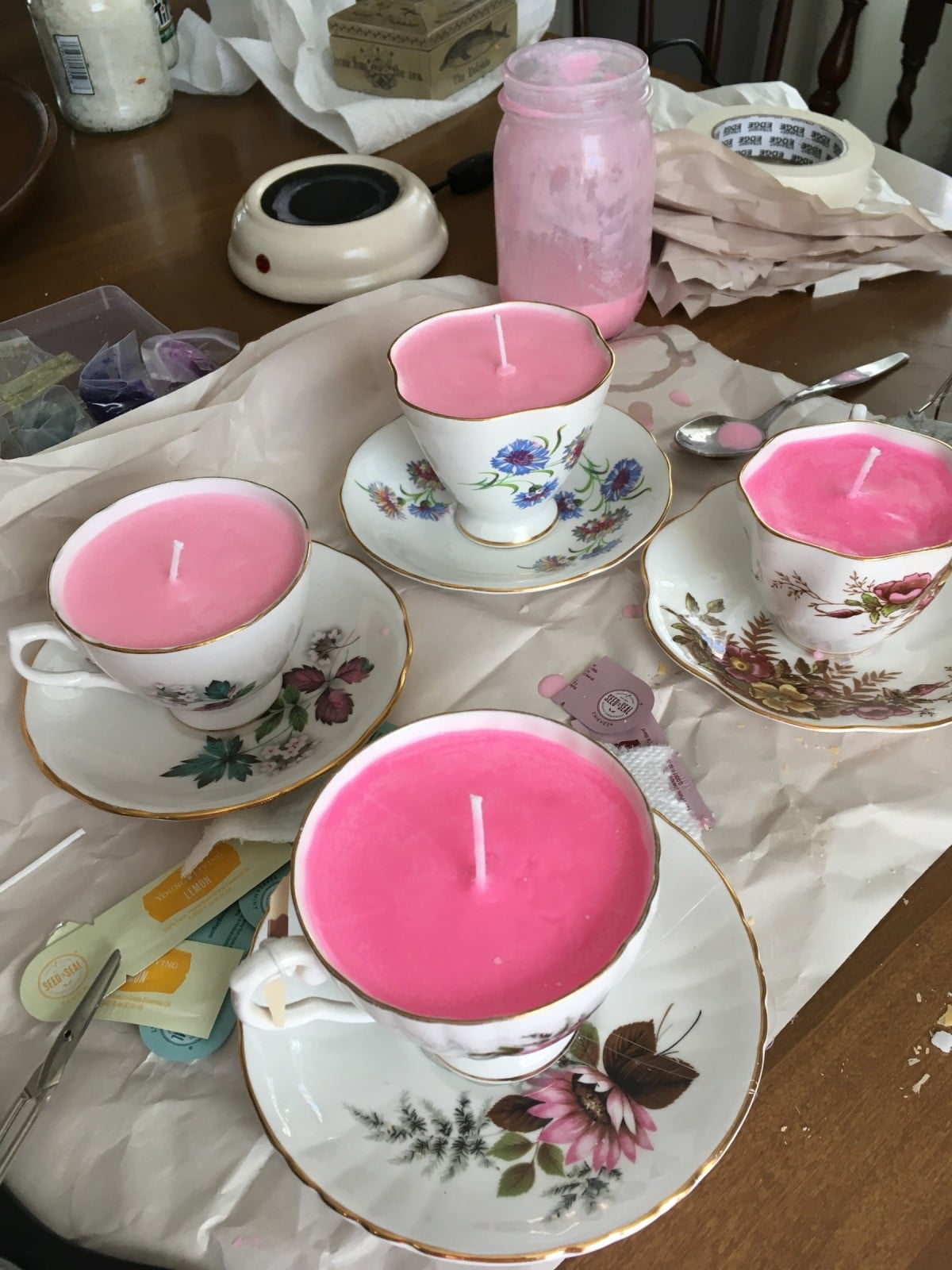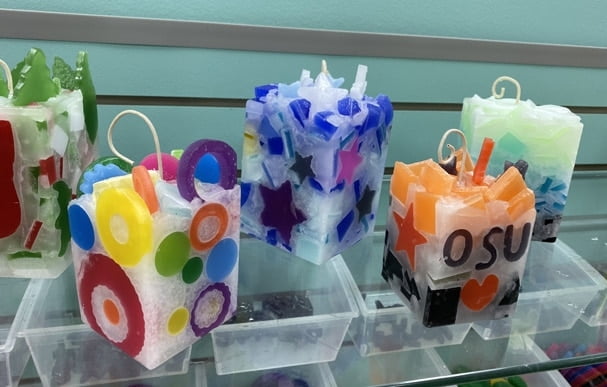Are you interested in learning how to use coconut 2 wax for candle making? Look no further. In this article, we will explore the many benefits of using coconut 2 wax and provide you with a comprehensive guide on how to make beautiful candles with this sustainable and eco-friendly material.
Coconut 2 wax is a natural, versatile, and sustainable option for candle making. Derived from coconut oil, it offers numerous advantages over traditional waxes, such as a cleaner and longer burn time, minimal soot production, and excellent scent throw. In addition to its practical benefits, coconut 2 wax is also known for its environmentally friendly nature and can be a great choice for those who prioritize sustainability in their crafting endeavors.
To understand the full potential of coconut 2 wax in candle making, it’s important to first delve into its history and origin. By exploring the rich heritage of this unique wax, we can gain a deeper appreciation for its characteristics and learn how to best utilize its properties in our candle making projects.
Benefits of Using Coconut 2 Wax for Candle Making
Coconut 2 wax is a natural, sustainable, and eco-friendly option for candle making. It is a blend of coconut wax and other natural waxes, resulting in a clean-burning and long-lasting candle. The benefits of using coconut 2 wax for candle making are numerous, making it a popular choice among crafters and artisans.
Some advantages of using coconut 2 wax over other types of wax include:
- Clean Burning: Coconut 2 wax burns cleaner than paraffin wax, releasing fewer toxins into the air.
- Long-Lasting: Candles made with coconut 2 wax have a longer burn time compared to those made with traditional waxes.
- Sustainable: Coconut wax is derived from renewable resources, making it an environmentally friendly choice.
In addition to these benefits, coconut 2 wax also has excellent scent throw and provides a smooth and creamy appearance when used in candle making. Its versatility allows crafters to create different types of candles, from pillars to container candles, with ease.
When choosing the right coconut 2 wax for your candle making project, it is essential to consider factors such as the melting point, pour temperature, and consistency desired for your specific candle designs. Understanding the different types and grades of coconut 2 wax available in the market will help you make an informed decision when selecting the best option for your needs.
With its many benefits and sustainability aspect, coconut 2 wax has become a popular choice for those who want to create high-quality candles while being mindful of environmental impact.
Choosing the Right Coconut 2 Wax for Your Candle Making Project
When it comes to selecting the right coconut 2 wax for your candle making project, there are a few key factors to consider. The first thing to look at is the type of coconut 2 wax available in the market. There are different grades and types of coconut waxes, each with its own unique characteristics and qualities. Some may be better suited for certain types of candles, such as container candles or pillar candles, while others may be more versatile.
Another important consideration when choosing coconut 2 wax is the source and sustainability of the product. Many candle makers prefer to use organic and sustainably sourced coconut waxes to align with their values and commitment to eco-friendly practices. It’s essential to research different suppliers and manufacturers to ensure that the coconut 2 wax you choose meets your ethical standards.
In addition to type and sustainability, it’s crucial to consider the specific requirements of your candle making project. Factors such as fragrance load, burn time, and appearance all play a role in determining which coconut 2 wax will work best for your needs. By carefully assessing these elements, you can confidently select the right coconut 2 wax that will result in high-quality candles that meet your desired specifications.
| Coconut Wax Type | Sustainability | Candle Making Requirements |
|---|---|---|
| Virgin Coconut Wax | Organic and sustainably sourced | Well-suited for scented container candles |
| Coconut-Soy Blend Wax | Eco-friendly production methods | Ideal for creating clean-burning pillar candles |
Supplies and Equipment Needed for Working With Coconut 2 Wax
Coconut 2 wax has gained popularity in the world of candle making due to its sustainable and eco-friendly nature. When working with coconut 2 wax, it is essential to have the right supplies and equipment to ensure the best results. Here are the essential tools and materials needed for working with coconut 2 wax in candle making.
First and foremost, you will need a double boiler or a large saucepan and a heat-resistant container for melting the coconut 2 wax. This will allow for even melting without direct heat, reducing the risk of overheating or burning the wax. Additionally, a thermometer is crucial to monitor the temperature of the melted wax, ensuring that it stays within the recommended range for candle making.
Next, you will need wicks specifically designed for use with coconut 2 wax. Choosing the right wick size is important to ensure an even burn and proper scent throw in your candles. Wicks come in various sizes and materials, so it’s important to select ones that are suitable for coconut 2 wax.
Another essential supply is a candle mold or container for shaping your candles. Depending on your desired candle shape and size, there are different options available, including metal molds, silicone molds, glass jars, or tins. It’s important to choose a container that is heat-resistant and suitable for use with coconut 2 wax.
In addition to these main supplies, other basic materials such as a pouring pitcher, stirring utensils, and fragrance oils or dyes may also be needed depending on your specific candle making project. When sourcing these supplies and equipment, it’s important to prioritize high-quality products that are safe for use with coconut 2 wax for optimal results.
By having all the necessary supplies and equipment at hand, you can embark on your candle making journey with coconut 2 wax confidently and efficiently. This sustainable alternative offers a unique opportunity to create beautiful candles while minimizing environmental impact.
Step-by-Step Guide to Making Candles With Coconut 2 Wax
When it comes to making candles with coconut 2 wax, it’s essential to understand the process and follow the right steps for successful results. First, start by gathering all the necessary materials and equipment, including coconut 2 wax, wicks, a double boiler or melting pot, a thermometer, fragrance oils (if desired), and candle containers. Ensure that your workspace is clean and well-ventilated before you begin.
The first step in making candles with coconut 2 wax is melting the wax. Using a double boiler or a dedicated wax melting pot, heat the coconut 2 wax to the recommended temperature of around 185-195°F (85-90°C).
It’s crucial to monitor the temperature carefully using a thermometer to prevent overheating or scorching the wax. Once the coconut 2 wax has completely melted and reached the desired temperature, it’s ready for the next stage of the candle-making process.
After melting the coconut 2 wax, it’s time to prepare your candle containers and wicks. Place the wicks in the center of each container and secure them in place using wick stickers or hot glue. Then, carefully pour the melted coconut 2 wax into the prepared containers, ensuring that no air bubbles are trapped. Allow the candles to cool and set at room temperature for several hours before trimming the wicks and enjoying your homemade coconut 2 wax candles.
| Materials and Equipment Needed | Process |
|---|---|
| Coconut 2 Wax | Melt in a double boiler or melting pot at around 185-195°F (85-90°C) |
| Wicks | Place in centered containers after preparing them |
| Candle Containers | Pour melted coconut 2 wax into prepared containers without trapping air bubbles |
Adding Fragrance and Color to Coconut 2 Wax Candles
Methods for Adding Fragrance and Color
When it comes to adding fragrance and color to your coconut 2 wax candles, there are a few different methods you can use. For incorporating scents, one popular technique is to use fragrance oils specifically designed for candle making.
These oils are formulated to blend well with the wax and emit a strong, long-lasting aroma when the candle is burned. Another method is to use essential oils, which are derived from natural plant sources and can provide a more subtle and holistic fragrance experience.
For adding color to your coconut 2 wax candles, you can use dye chips or liquid dyes that are specifically made for candle making. These dyes are highly concentrated, so only a small amount is needed to achieve vibrant hues in your candles. It’s important to note that when working with any fragrances or dyes, you should follow the manufacturer’s recommendations for safe usage levels to ensure the quality and performance of your candles.
Recommendations for Fragrance and Color Combinations
Choosing the right combination of fragrance and color for your coconut 2 wax candles can enhance their appeal and create a delightful sensory experience for users. Some popular fragrance options that pair well with the natural aroma of coconut include tropical scents like pineapple, mango, and coconut lime. For a more soothing ambiance, lavender, vanilla, or sandalwood fragrances can complement the subtle sweetness of coconut 2 wax.
In terms of color combinations, pastel shades like light blue, soft pink, or pale yellow often evoke a sense of tranquility and relaxation. If you prefer bold and vibrant colors, jewel tones like emerald green, sapphire blue, or deep purple can add a touch of luxury to your coconut 2 wax candles. Experimenting with different fragrance and color combinations allows you to create unique candles that cater to different preferences and occasions.
Tips for Blending Fragrance and Color
When adding fragrance oils or essential oils to your coconut 2 wax candles, it’s important to measure carefully according to the recommended usage rates provided by the supplier. Over-saturating your wax with too much fragrance oil can result in poor burn performance or an overpowering scent. Similarly, when using dyes for coloring your candles, start with a small amount first before adding more until you achieve the desired hue.
To ensure an even distribution of fragrance and color throughout your candle, stir the melted coconut 2 wax gently but thoroughly before pouring it into the containers. This helps prevent any streaks or uneven coloring within the candle. Lastly try testing small batches of different combinations first before creating larger quantities ensures that you’re fully satisfied with both scent throw during burning time as well as how beautiful they look when presented on display.
Troubleshooting Common Issues When Using Coconut 2 Wax for Candle Making
Addressing Potential Problems
When using coconut 2 wax for candle making, there are a few common issues that you may encounter. One of these is frosting, which appears as a white, powdery substance on the surface of the candle. Another issue is sinkholes, which are indentations that can form in the center of the candle as it cools and solidifies. Adhesion problems, where the wax does not adhere properly to the container or wick, can also occur.
Solutions and Tips for Troubleshooting
To address frosting, try pouring your candles at a slightly higher temperature and avoiding drastic changes in temperature during the cooling process. For sinkholes, consider using a heat gun to gently warm the surface of the candle and fill in any indentations. To improve adhesion, ensure that your containers and wicks are properly prepared before pouring the wax and use suitable adhesives if necessary.
Final Thoughts
By understanding how to troubleshoot these common issues when using coconut 2 wax for candle making, you can ensure that your candles turn out beautifully every time. Don’t be discouraged if you encounter challenges along the way – with patience and practice, you’ll become more adept at working with this sustainable and versatile wax option.
Conclusion
In conclusion, it is clear that coconut 2 wax is a versatile and sustainable option for candle making. Its numerous benefits, including a clean burn, excellent scent throw, and eco-friendly nature, make it a popular choice among candle makers. Whether you are a hobbyist or a professional, coconut 2 wax offers an array of advantages over other types of wax, and its versatility allows for endless creative possibilities in candle making.
When considering how to use coconut 2 wax for candle making, it is important to carefully select the right type and grade of coconut 2 wax for your specific needs. Factors such as melt point, fragrance retention, and dye absorption should be taken into account when choosing the best coconut 2 wax for your project. Additionally, having the necessary supplies and equipment is essential for successful candle making with coconut 2 wax.
As you embark on your journey of creating candles with coconut 2 wax, don’t be afraid to experiment with different fragrance and color combinations to personalize your creations. The process of making candles with coconut 2 wax may require some troubleshooting at times, but with the right techniques and solutions at hand, you can overcome any issues that may arise.
In the end, embracing the versatility of coconut 2 wax opens up a world of creative opportunities in the art of candle making.
Frequently Asked Questions
How Do You Use Coconut Wax for Candles?
Coconut wax can be used for candles by melting it down, adding fragrance oils or essential oils, and pouring the melted wax into candle containers. It has a lower melt point and better scent throw.
What Wick Should I Use for Coconut Wax?
When using coconut wax for candles, it’s best to use wicks that are specifically designed for vegetable-based waxes. These wicks are typically made of cotton with a natural paper core and are ideal for achieving a clean, even burn in coconut wax candles.
Can You Use 100% Coconut Wax for Candles?
Yes, 100% coconut wax can be used for candles. It is known for its clean-burning properties, excellent scent throw, and ability to hold a high fragrance load. Coconut wax also has a softer consistency which makes it easy to work with when making candles.

Welcome to my candle making blog! In this blog, I will be sharing my tips and tricks for making candles. I will also be sharing some of my favorite recipes.





